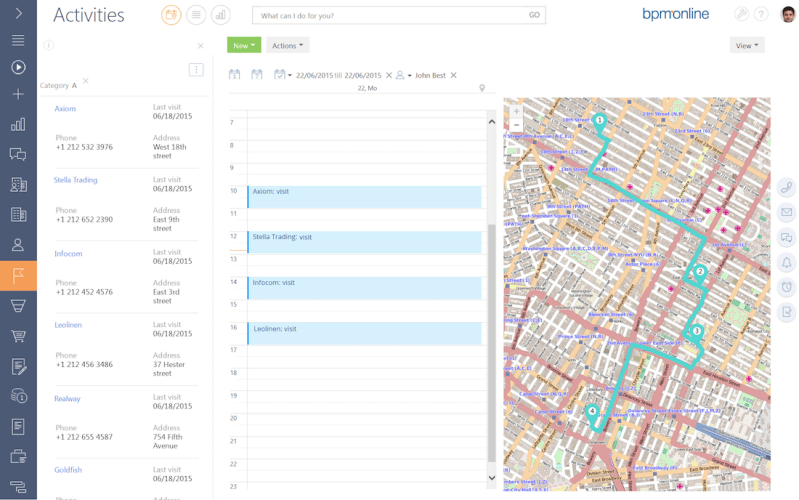With sales tools proliferating like kudzu, two new releases this week typify the ends of the sales management spectrum.
One is AppMesh’s version 3.0 of its SalesMesh tool, launched Tuesday.
It creates a parallel customer relationship management (CRM) outside of Salesforce, so sales reps can keep their deal info, contacts, and even communications with other sales reps outside of that popular ecosystem until the deal seems likely. That helps keep overbearing managers off reps’ backs.
The other end of the spectrum is BPM’Online, whose version 7.6 of its cloud-based CRM for sales, marketing, and customer service is out today.
AI Weekly
The must-read newsletter for AI and Big Data industry written by Khari Johnson, Kyle Wiggers, and Seth Colaner.
Included with VentureBeat Insider and VentureBeat VIP memberships.
The company’s differentiator is embodied in its name, whose initials stand for built-in business process management.
“By having an automated process,” senior vice president and general manager Mike Rooney told me, “you can direct a sales team to follow a methodology.”
“Sales managers want consistent qualification of pipelines,” he said, so sales reps can’t arbitrarily move opportunities to different stages. In Salesforce and GoldMine, he noted, end users can move opportunities from stage to stage, but the sales manager might want to know, “Why do you have this opportunity at a 90 percent likelihood?”
New features in version 7.6 extend the platform’s emphasis on business processes. There’s now the ability for sales managers to set up guided activities for reps’ field visits, along with GPS tracking to help determine which reps are the most efficient.

Above: A screen in the newest version of BPM’Online, showing a sales rep’s activities.
Calendar events can now be triggered by the activity queue, email campaign tools have been expanded with such functions as activity-based triggers, and the integration with Facebook is expanded. There’s also now video calling between platform users, an updated self-service customer portal, and new training resources.
Whether used for field sales, long-term corporate sales, or call centers, Rooney said, “the [BPM] system is kind of on a conveyor belt.”
I asked if BPM’Online’s approach was designed for a different kind of salesperson or structure than, say, AppMesh’s.
Perhaps AppMesh works well for more independent sales reps, Rooney suggested, like commission-based insurance or real estate reps.
But if I have employees who are paid salaries, he said, “I’m looking for transparency.”
AppMesh is targeted at small companies. Even though it allows reps to sync with Salesforce when they want, over half of its customers don’t even use Salesforce or any other CRM.
VB just released Marketing automation: How to make the right buying decision (the first time)
$299 on VB Insight, or free with your martech subscription
By contrast, BPM’Online — which has been around for a venerable 13 years — focuses globally on large enterprises and in the U.S. on midsize to large enterprises.
Compared to BPM’Online’s baked-in business processes, Rooney pointed out that Salesforce and SugarCRM have added business process management.
Additionally, he noted that social tools are integrated into BPM’Online’s interface, and its sales, marketing, and service functions are integrated into one platform.
VentureBeat's mission is to be a digital town square for technical decision-makers to gain knowledge about transformative enterprise technology and transact. Learn More
